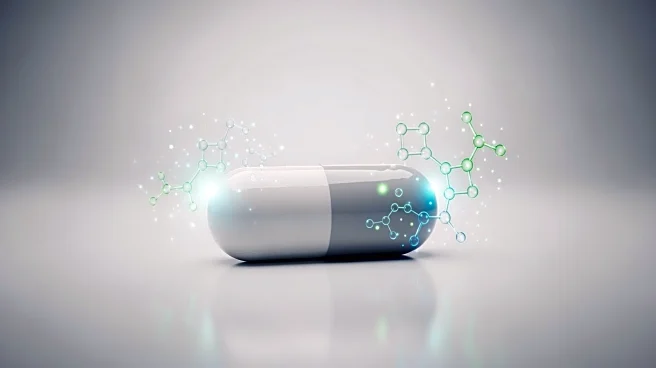What's Happening?
The FDA has approved an injectable version of Merck's cancer drug Keytruda, which is a major revenue generator for the company. The subcutaneous shot can be administered in one to two minutes, offering an alternative to the traditional 30-minute infusion. This new format aims to provide flexibility and convenience for patients, particularly those with early-stage cancers or those adding Keytruda to oral drugs. Despite the approval, Merck's stock saw a decline, reflecting broader concerns about the impending patent cliff that could impact Keytruda's sales.
Why It's Important?
Keytruda is a leading cancer drug, generating significant sales for Merck. The approval of the subcutaneous version could help mitigate the expected decline in sales due to biosimilar competition once the drug's patent expires in 2028. The injectable format offers a more convenient option for patients, potentially increasing its adoption in early-stage cancer treatments. However, the impact on Merck's overall sales remains uncertain, as the drug faces competition from combination therapies requiring intravenous administration.
What's Next?
Merck plans to launch the subcutaneous Keytruda by the end of the month for patients with solid tumors. The company is also conducting studies to assess patient preference between the infusion and the shot. Analysts predict that 30% to 40% of patients may switch to the subcutaneous version within two years, but the long-term impact on sales will depend on the competitive landscape and patient adoption.









